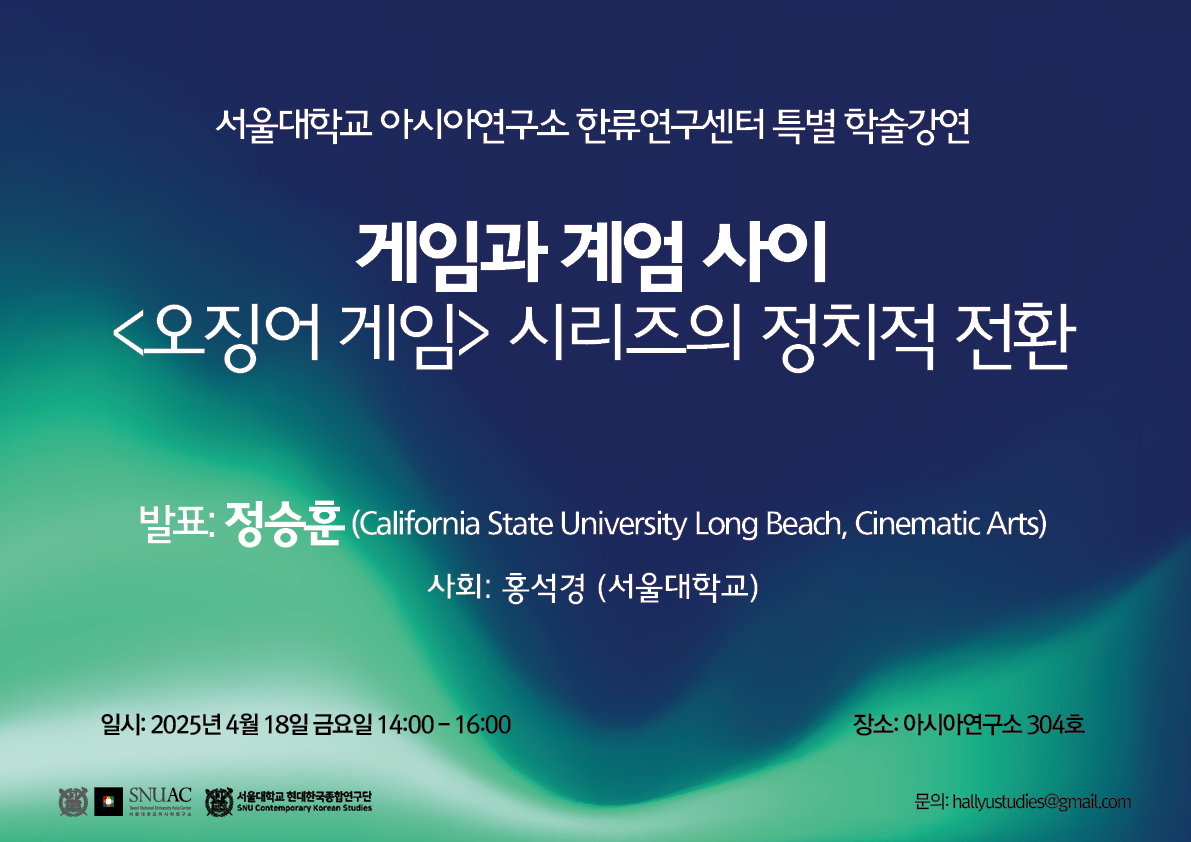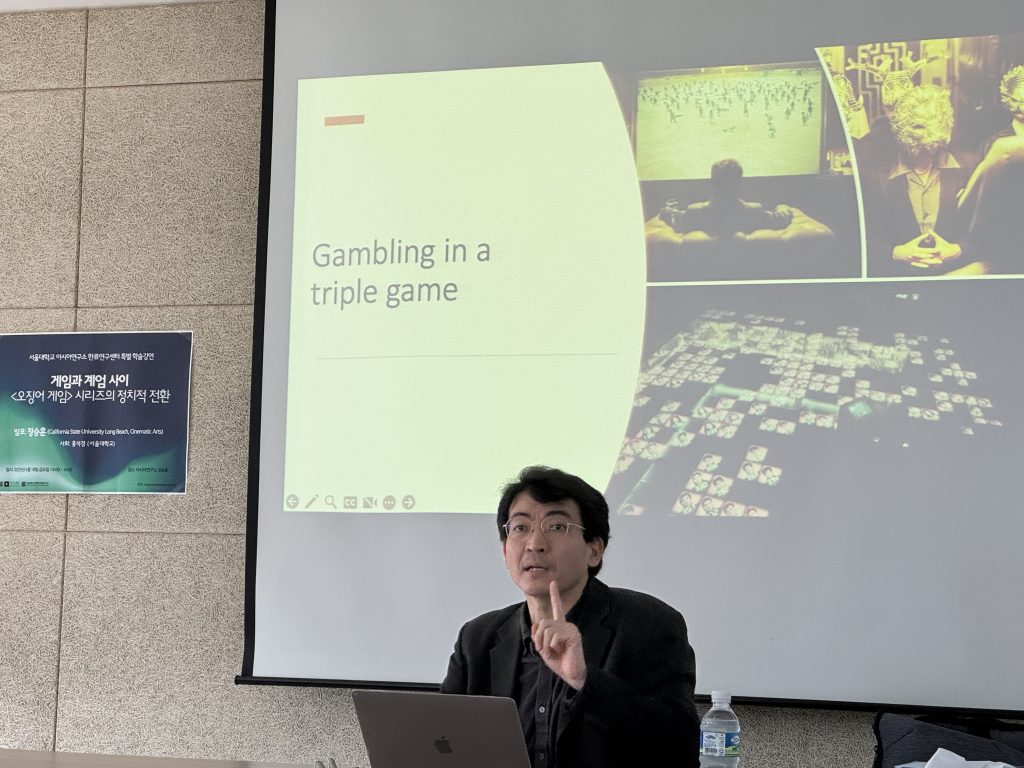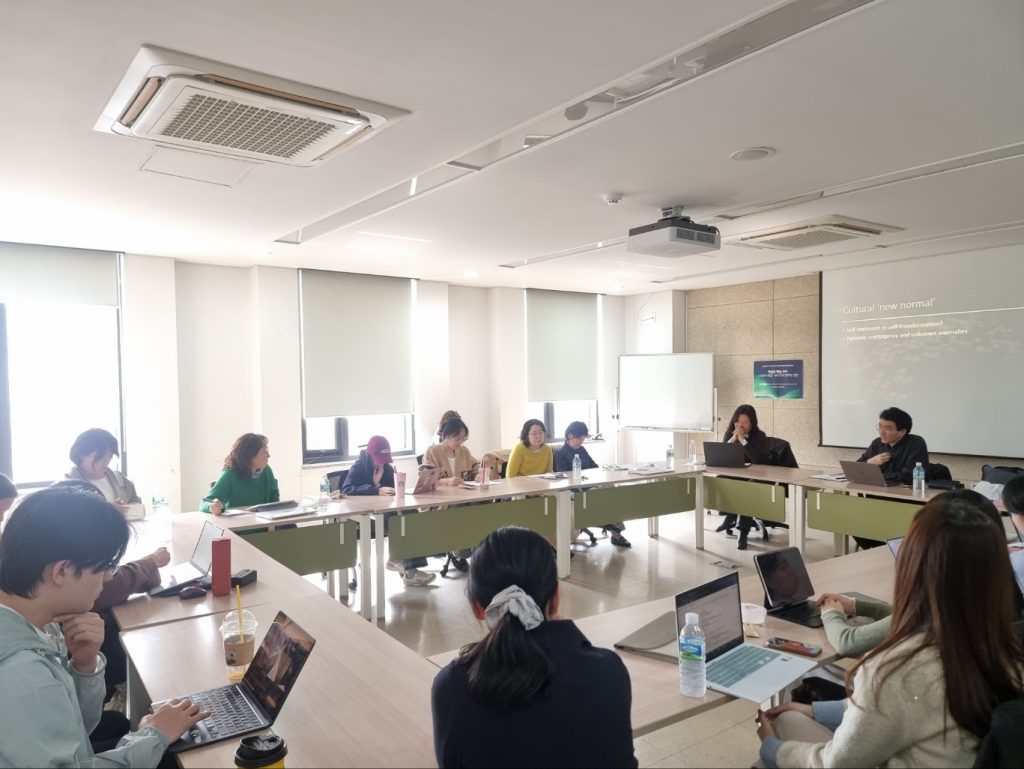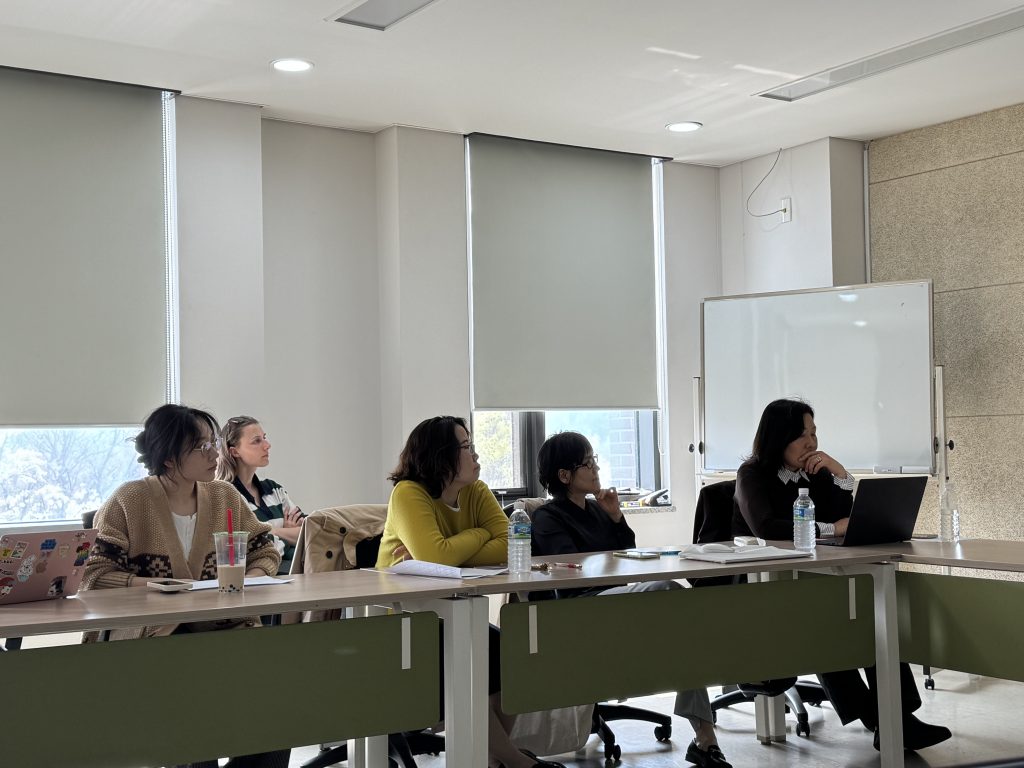Research Teams
Comprised of nine research teams, each studying aspects of Korean politics, economy, technology, and culture.
We promote interdisciplinary collaboration and global academic exchange.
[Academic] Special Lecture – Between Game and Martial Law: The Political Shift in the Series
2025-08-20





